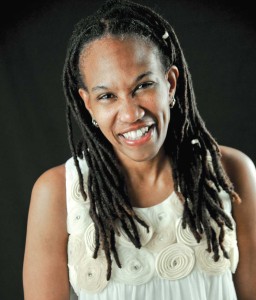Pittman started law school at Tulane University with the idea of studying sports law and possibly becoming an agent for professional football players. But pro bono work she did with older prisoners at Louisiana’s infamous Angola prison changed the course of her career, she told a videographer recently. She worked with a supervisor who, Pittman said, “would go to bat for people who were basically forgotten in their cells.”
She became a public defender in New Orleans, where she developed an interest in child psychology and gravitated “toward the cases no one wanted –– child sex offenders.” Pittman has been researching the impact of sex offender registries on children for almost eight years. A fellowship from the Soros Foundation allowed her to extend her research nationwide.
“What I uncovered shocked me,” she said. “The range of crimes that led to mandatory sex-offender registration was staggering — from public urination to rape.”

Sex offenses committed by children can be very serious. But in other cases, the repercussions seem wildly out of line with the children’s original acts.
In one of the cases Pittman examined, a 12-year-old boy in East Texas inappropriately touched a 7-year-old girl. He pleaded guilty to aggravated sexual assault, completed two years of juvenile probation and therapy, and then had to register for a decade. He was 25 when his name was finally taken off the sex-offender list.
Sometimes the “crimes” seem almost victimless. In a Pennsylvania case, a 15-year-old girl posted nude pictures of herself on the internet. She was charged as an adult with disseminating child pornography, and as of 2012 was facing registration for life.
Other cases involve young teenagers or pre-teens who engaged in consensual sex. One young woman was arrested at age 10 for engaging in pretend sex with her stepbrothers. When she turned 18, her name and photo were added to her state’s sex offender registry, even though she had successfully completed her term in juvenile prison, undergone a treatment program, and returned to high school as an active, involved student. When her name went onto the registry, she was fired from her job and was subsequently harassed at college and forced to drop out.
Once, while she was attempting to provide a new address for the registry, as required by law, the young woman told Pittman, “A police officer refused to give me the paperwork and instead stated, ‘We’re just taking your kind out back and shooting them.’ ”
One Texas father whose 10-year-old son was placed on the registry said a man once held a shotgun to the boy’s head.
Much of the rationale for registries is based on the belief that sex offenders have a strong tendency to commit further sexual crimes. Pittman said that is a myth that has not been dispelled despite years of evidence to the contrary. Recidivism rates among all sex offenders are lower than for most other crimes, she said. And among child sexual offenders, the rates are particularly low. After doing hundreds of interviews for the study, she said, she had found only one juvenile sex offender who had committed a new sexual crime.
Such children do rack up lots of convictions and jail time, however –– often because they run afoul of the technical requirements of registry laws. Pittman said her research showed that in many cases, accused juvenile sex offenders are never advised that being placed on a sex-offender registry — in many cases for decades — is part of the deal if they plead guilty to a sex-offense charge.
Shaw, the Tarrant County juvenile prosecutor, said Texas law allows judges flexibility in whetvher to place juvenile offenders on the registry.
“There are folks who need to be registered and that the public needs to know about,” he said. But judges can also decide not to put juveniles on the registry at all or to defer that decision until the young offender finishes a therapy program. There is also the option, Shaw said, of putting young offenders on the non-public registry, open only to law enforcement agencies.
Many times, Pittman found, enforcement is as much a question as the law itself.
Elijah, who started registering at 16, eventually moved from Michigan to Houston and transferred his registration there, as required. One day while he was at work, police officers entered and arrested him for allegedly failing to update his address in Michigan.
“My general manager made a point to come and publicly fire me in front of everyone because I’m labeled a so-called sex offender,” he recounted to the Human Rights Watch researcher. Elijah was handcuffed and put in a van “going state to state picking up other inmates.” It took him a week to get back to Michigan, where he sat in jail for three months before authorities “realized that I was no longer required to update my address in Michigan because I was a resident of Texas and registered properly there,” he said.
When they turned him loose, Elijah told Pittman, he had to find his own way back to Texas.
********
Laws placing children on public sex-offender registries have been “a little bit of a runaway train,” Pittman said, but she thinks it’s one that may be running out of steam, even in Texas.
This state is “very, very harsh” in its laws and criminal justice system for juveniles, she said, “but Texas has also been very accepting” of information, such as her study, that indicates that laws regarding placement of child offenders on the registry may be in need of reform. She believes a bill to make some changes in the registry laws may be offered in the next regular legislative session.
Shaw said he doesn’t believe any changes are needed in Texas law regarding registration for juvenile offenders.
“The changes in the law made earlier this millennium were at least in part in response to some of the unintended consequences of registering juveniles as sex offenders,” he said — including consequences for crime victims.
Where the young offenders and their victims were siblings, for instance, he said, a decision to require registration “in some cases caused families to be evicted and therefore caused the victim to lose his or her home” or for the victim to suffer at school “because their sibling is now a registered sex offender.”
Short of convincing legislators to entirely remove juveniles from sex- offender lists, Pittman recommends less far-reaching changes, including placing juveniles only on non-public registries. She would also like judges in all states to have leeway in registry decisions, based on the particulars of each case. And she believes the law should require child sex offenders and their families to be specifically informed of the repercussions of guilty pleas, including the consequences of being placed on a sex-offender registry.
As with drug addiction and domestic abuse, the effects of sexual abuse can spill over onto successive generations, as well as onto other members of a household. The same is true for children found guilty of sexual crimes: Those who make it through juvenile jail and probation to adulthood often find that the damage done by sex-offender registration continues with their own children.
A 2009 study published in the American Journal of Criminal Justice, quoted in “Raised on the Registry,” found that three-quarters of the children of registrants had lost friends because of their parent’s sex-offender status. Another study found that prohibitions against former juvenile sex offenders attending events at their own children’s schools had serious consequences for the whole family. These children, too, reported harassment, violence, and being stigmatized by teachers and other students.
In one report that Pittman found, a Texas teenager shot herself to death “after her father’s photo appeared on the state internet registry, embarrassing her at school.”
Another young woman wrote to the Human Rights Watch researcher last year to describe her life as the child of a registered sex offender.
“I wake up every morning wondering how many [sex offender] signs may be on our front lawn; how many people are going to ride by our house, point, and take pictures; how many people are going to watch every move we make today; and how many times people are going to call the police to report that my parent has done something which for an average person would be [considered] normal but because my parent is a known ‘sex offender,’ it is suspicious behavior. How many more birthdays will be with just family because other parents will not let their kids come to my party? How many parties will I not be invited to [and] how many field trips will I not attend because it is too hard to listen to the whispers of the other parents?”
A version of this story originally appeared in the San Antonio Current. Fort Worth Weekly editor Gayle Reaves contributed to this version.












I would like for Assistant D.A. Riley Shaw to know that whatever changes were made to Texas law 10 years ago did not make Texas a more progressive state when it comes to juveniles and sex offenses. Who is he kidding? That Perry appointment must have gone to his head. The truth is Texas has no mercy once a person has been accused of a sex offense, regardless of age or the actual incident.
“Once you are on a publicly accessible registry, your life is pretty much shot.” — Sen. Bobby Scott at the AWA Reauthorization Hearing
The registry is barbaric for anyone listed on it, but it is especially heinous for teenagers, who are ill-equipped to handle a fate worse than death.
I agree. I am with a guy that poses no threat toe children. He has to be on the registry cause he looked at porn and a website popped up and there was an underage girl (16) on there. The people that are making these sites need to be put away.
Just saw this too. There is still hope. http://www.defenselawyer.net/sex-offender-deregistration
I read that article & it really makes you wonder what lawmakers & judges are thinking when they put kids as young as 9 on a sex offender registry. When I think back to my childhood, any number of boys who wanted to play “you show me yours, I’ll show you mine” would have been ruined for life under this current system! Also the girl who was convicted as an adult of distributing child porn when the child porn in question was pictures of herself is absolutely tragic injustice. The judge who convicted her & put her on the registry as well as the DA who brought the charges should lose their bar cards for being too stupid to be on the bench or representing the public. There seems to be very little common sense being used in law enforcement these days.